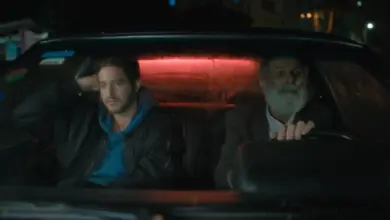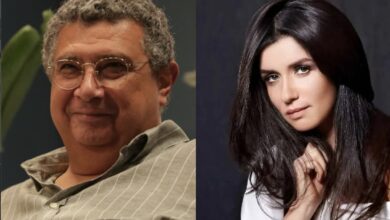The 64th Cannes Film Festival opened on 11 May, and Egypt has been given pride of place as the first ever "guest country" at the international movie event. The honor is being bestowed on Egypt largely in recognition of its recent revolution, a historical event that will be celebrated this week with the screening of "18 Days", a collaborative work comprising ten short fictional films inspired by the revolution.
Yet, even as the nation congratulates itself on such a high-profile honor, Egypt's cinematic scene is riven with squabbles and controversies surrounding the movie, and more particularly the involvement of two directors accused of working too closely with the former regime.
Ever since the news about the screening of "18 Days" came out, Egyptian filmmakers and critics have been divided in their response, with some criticizing the participation of directors Sherif Arafa and Marwan Hamed in the film on the grounds that they made advertisements for former President Mubarak's 2005 presidential campaign. The criticism has formed part of a wider debate over whether or not to purge the film industry of individuals tainted by association with the Mubarak regime.
Amidst heated debates, well-known director Yousry Nasrallah issued a statement defending both the film and freedom of expression in general in the post-Mubarak era – one of the key goals of the 25 January revolution. Talking with Al-Masry Al-Youm, he defended the contributions of Arafa and Hamed, and explained the origins of the project in the early days of the uprising.
"18 Days" is a collaborative work of ten short fictional films inspired by the Egyptian revolution. Each segment runs between ten and 14 minutes, using the popular form of Emmanuel Benbihy's "New York, I Love You," and "Paris, Je t'aime".
In addition to Arafa and Hamed, the participating filmmakers are Nasrallah, Mariam Abou Ouf, Mohamed Aly, Kamla Abou Zikri, Sherif al-Bendari, Khaled Marei, Ahmad Abdalla and Ahmad Alaa. The filmmakers, as well as over a dozen actors, writers and technicians, have been working on a voluntary basis, and the film's revenue will be used to fund development projects in rural Egypt under the directorship of a newly founded NGO.
According to Nasrallah, the criticisms levelled against the film and its makers are absurd. Arafa, who directed “al-Nawm fi al-Assal” (Sleeping in Honey) and “Toyour al-Zalam” (Birds of Darkness), cannot be accused of supporting the Mubarak regime, Nasrallah told Al-Masry Al-Youm. A similar case can be argued for Hamed, who directed “Emarat Yacoubian” (The Yacoubian building).
“I can criticize them, but that does not mean that I should exclude them from the scene,” Nasrallah said. Both filmmakers were at Tahrir Square from 25 January and they were filming from the perspective of the pro-democracy demonstrators, he added. “They didn’t wait like many others until the regime was sure to fall to express their solidarity.”
Contrary to common belief, "18 Days" was not commissioned by the Cannes Film Festival. In an interview with Radio France Internationale on 29 January, Nasrallah was asked about the participation of local filmmakers in the revolution. He mentioned a new project proposed by Hamed – making a series of short films reflecting the experience of Egyptian filmmakers during the revolution.
"The idea was to make films inspired by the spirit of freedom and empowerment which the revolutionaries were demanding,” Nasrallah told Al-Masry Al-Youm. “At that moment, there were no producers, no budget and no censorship. The State Security forces could not prevent us at the time from filming on the street,” said Nasrallah.
A few days later, Magda Wassef – a Cannes selection juror of films from the Near and Middle East and the director of the Institute for Arab Cinema in Paris – contacted Nasrallah about showing “18 Days” in Cannes.
Perhaps one reason for the concern over the involvement of Hamed and Arafa is that the film is assumed by some to be an "official" contribution by Egypt.
However, as Nasrallah explained, neither the Egyptian Ministry of Culture nor the Cairo Film Festival had any role in the selection. Hence, although the screening has been framed as a tribute to Egypt, the film does not really represent the nation.
“It’s a popular initiative that stems from our personal experience during the revolution,” added Nasrallah."The argument that '18 Days' mars the Egyptian revolution is absurd… Films express the artistic vision of the filmmakers. Festivals no longer represent countries."
Abdalla, who participated in making "18 Days" has also spoken in its defence, explaining the motivation behind its production and responding to criticisms of commercialisation.
"The participating filmmakers are talking about a particular moment based on their understanding of it,” said Abdalla. "We wanted to put the films in the public domain. They would be shown simultaneously in movie theaters and on YouTube.”
Abdalla said that while fears of commercializing the revolution are understandable, it would not be fair to condemn the collection of short films before watching them. “The works should be criticised in relation to the current events and then revisited a few years later after enough time has lapsed to reflect on the revolution,” he said.
As well as screening "18 Days", the Cannes festival will celebrate Egypt and its cinematic heritage in other ways. The late Egyptian director Youssef Chahine will be remembered, followed by a concert by Egyptian pop band Wust al-Balad and an official dinner attended by Minister of Culture Emad Abu Ghazi and the Egyptian ambassador to France Nasser Kamel.
A new copy of Hussein Kamal's 1968 "al-Bostagui" (The Postman) will be shown as part of the Cannes Classics selection and Sameh Abdel Aziz's new film "Sarkhat al-Namla" (An Ant's Cry) will be screened at the Cinéma de la Plage.



